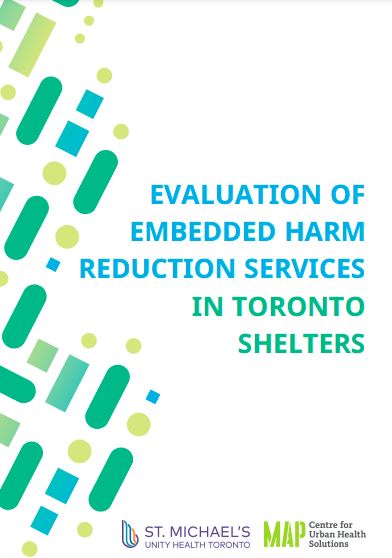Toronto is experiencing parallel toxic drug poisoning and affordable housing crises, both of which have been made considerably worse by the COVID-19 pandemic. In response to the pandemic, the City established new shelter hotels to enable physical distancing. In part, this increased residents’ vulnerability to overdose as more people used alone, while simultaneously attempting to manage the social, economic, and health effects of the pandemic. In partnership with shelter operators and community health organizations, the City of Toronto introduced a suite of embedded harm reduction services into shelters, respites and shelter hotels, including increased access to naloxone and harm reduction supplies, intensive mental health case management, outreach, peer-based supports, and overdose prevention services.
This report offers an evaluation of those services and recommendations for improvements across the
sector related to embedded harm reduction, by asking the following research questions:
- How have expanded and integrated harm reduction interventions established in shelters,
respites and temporary shelter hotels during the COVID-19 pandemic impacted overdose
response and prevention? - What are the impacts of embedded harm reduction services on the physical and mental health
of residents, staff wellness, and sector partnerships and accountability? - What are the implications and lessons learned for establishing a continuum of harm reduction
services into housing and community care more broadly?
This report draws on focus groups with shelter residents who use harm reduction services, in-depth
interviews with front-line staff who work in the shelters and respites, a sector-wide front-line staff
survey, and in-depth interviews with leadership involved in the planning and implementation of harm
reduction services. Findings are organized and presented across several themes, with each integrating
data from residents, staff, and leadership.



